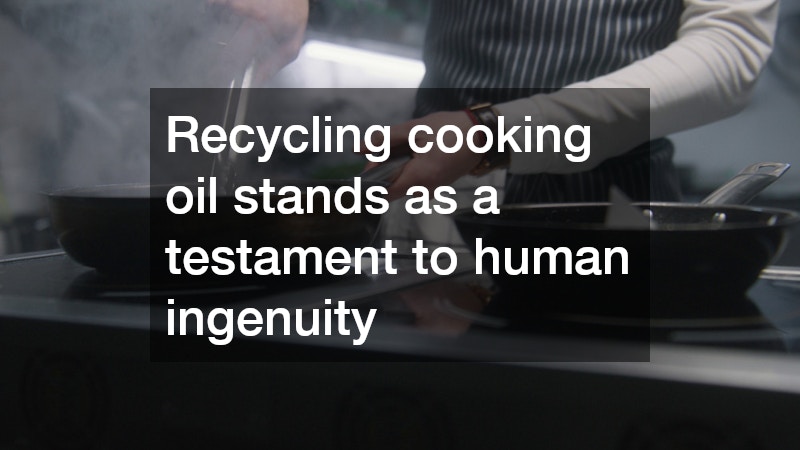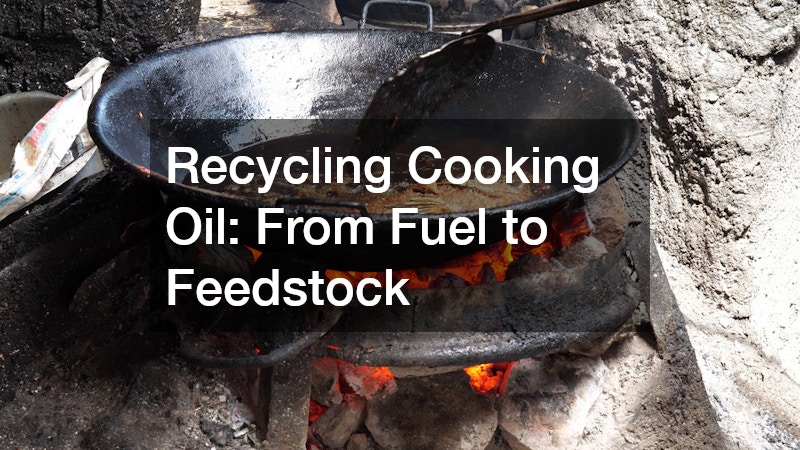
In the quest for sustainable and environmentally friendly practices, recycling cooking oil has emerged as a pivotal initiative. This long-form article explores the multifaceted aspects of recycling cooking oil after cooking oil tank cleaners come in, offering insights into its transformations and applications, including its conversion into biodiesel, animal feed, industrial lubricants, and even renewable energy sources. By examining environmental benefits, economic opportunities, and real-world implementation strategies, this article aims to inspire practical action and increased participation in responsible waste oil management.
What are the Environmental Benefits of Recycling Cooking Oil?
Recycling cooking oil significantly reduces the carbon footprint by offering a sustainable alternative to traditional waste disposal methods, minimizing pollution, preserving natural resources, and supporting the circular economy through innovative reuse and energy recovery solutions.
When cooking oil is improperly disposed of, it can seep into water systems, causing harm to marine life and contaminating drinking water sources. The environmental impact is further exacerbated as improperly discarded oil contributes to clogged sewage systems, driving up maintenance costs and increasing greenhouse gas emissions.
Utilizing recycled cooking oil as a renewable resource not only mitigates these risks but also curbs the reliance on fossil fuels, promoting a cleaner and more sustainable energy solution. Additionally, this practice helps lower overall pollution levels by reducing the volume of waste that enters landfills, decreasing the release of methane, a potent greenhouse gas.
How is Recycling Cooking Oil Transformed into Biofuel?
The transformation of used cooking oil into biofuel involves a series of chemical reactions known as transesterification, which converts the oil into methyl esters, commonly known as biodiesel, a cleaner-burning and renewable alternative to traditional fossil fuels.
During the transesterification process, the triglycerides in the oil are reacted with an alcohol, typically methanol, in the presence of a catalyst, resulting in the formation of glycerol and fatty acid methyl esters. This chemical conversion is crucial as it significantly reduces the viscosity of the oil, enabling it to be used effectively as a fuel in diesel engines.
This biofuel is not only cleaner-burning than petroleum diesel, but it also can lead to a reduction in engine wear due to its superior lubricating properties. The integration of biodiesel derived from used cooking oil into the energy sector exemplifies a circular economy, turning waste into a valuable and sustainable resource.
Can Recycled Cooking Oil be Used as Animal Feedstock?
Recycled cooking oil can serve as a viable feedstock option for animal nutrition, providing a dense source of energy, though it requires careful consideration of potential impurities and nutritional balance. The incorporation of used cooking oil in feedstock can contribute significantly to the dietary energy needs of livestock, offering a cost-effective solution for farmers.
However, it is essential to ensure the recycled oil is thoroughly filtered and treated to remove any harmful contaminants that may adversely affect animal health. Regular testing and quality control measures are vital to safeguard against toxins, ensuring that only pure, safe oil is consumed by the animals.
The use of recycled cooking oil in animal feed can also improve the overall sustainability of farming practices, promoting the efficient use of resources and reducing reliance on more traditional feed ingredients. By addressing these nutritional benefits and considerations, the agricultural sector can advance towards more eco-friendly practices without compromising the health and productivity of livestock.
Recycling cooking oil presents a multifaceted opportunity to address environmental issues, offer renewable energy solutions, and supplement animal nutrition needs. Embracing such practices can lead to a more sustainable future. By delving into the various applications of recycled cooking oil, we gain a clearer understanding of how these initiatives contribute to the broader goals of reducing waste and fostering ecological harmony.
Whether transforming used cooking oil into biofuel or incorporating it into animal feed, the positive impacts of this recycling effort are far-reaching and significant. As more businesses and individuals adopt these practices, the cumulative effects can lead to substantial improvements in both environmental conservation and economic efficiency.
The drive towards sustainability is relentless, and the innovative recycling of cooking oil stands as a testament to human ingenuity in the face of environmental challenges. The ongoing movement not only empowers communities but also demonstrates collective action toward a greener planet. Through awareness, education, and responsible waste management, we can turn everyday byproducts into powerful tools for environmental change and long-term global benefit.
.

